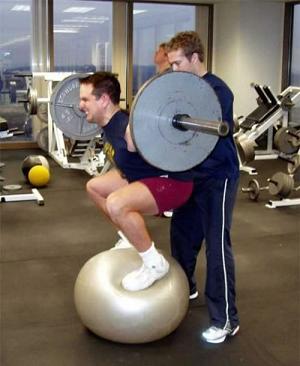“Allow me to
clarify that my question is not rhetorical” is a phrase I have been forced to
use way more often than I reasonably should have. It’s honestly frustrating as a fan of
philosophy, as quite often it is the answering of questions that leads us to a
greater understanding of a subject matter, and while a rhetorical question
certainly has its place, to treat legitimate questions as though they are
rhetorical is denying a learning opportunity.
But in addition to that, I have been writing in this blog for nearly 8
years, prior to which point I received my Master’s degree in a writing
intensive field (political science with an emphasis on western political
theory), before which I got my Bachelor’s degree in political science with a
minor in philosophy. I don’t say that to
express that I feel I am intelligent (I had roommates who could make my head
spin with the knowledge of mathematics and the hard sciences), but moreso to
convey that I have had to write a LOT to express my thoughts over the course of
my life, and I like the think that I’m accomplished enough at it that I can
convey myself without ambiguity. Thus,
when I ask what I feel is a blatantly non-rhetorical question and it gets
treated as though it were rhetorical, I find it difficult to assume that the
reader misunderstood me and more take to theorizing that they simply WISH my
question was rhetorical. Which in turn
leads to the (non-rhetorical) question of: “why won’t you answer my question?”

Somehow I doubt this is the reason
What I am
writing is the spiritual successor to my infamous “How Much Ya Bench” post, and
suggested (brilliantly) by Will Ruth in a continuation of my series on
questions, and I couldn’t be happier to discuss this subject. A most recent exchange I had on this very
premise was in regards to the incredibly silly (and fake) drama over the world
record deadlift attempt to be performed in the upcoming weeks. Specifically, I expressed a sentiment that
strongman records were silly and no one really cares about them anyway, to
which an individual asked me why I was even posting in a strongman subreddit in
the first place if I felt that way. I
answered their question and gave them a question back, specifically, I post at
that location because I compete in the sport of strongman: does the person
asking me this question compete in the sport?
And to add more to this, I clarified before my question “legitimate
question here”, and then asked. And this
individual STILL went on to not answer that question before proceeding too ask
me another question (something along the lines of who am I to decide what does
and does not matter in the sport). I
pointed out the rudeness of this person to not answer my question and ask me
one of their own, to which they replied that they thought I was being
rhetorical. Right…
Why wouldn’t
someone answer such a question? In
truth, much like “How Much Ya Bench”, they don’t answer because they understand
the ramifications of such an answer.
Specifically, that it discredits them.
But here’s a thought: if you’re embarrassed to answer a direct question,
does that mean shame upon the question asker for asking such a question, or
shame on you to put yourself in a situation where such a question is asked of
you? Why did I ask this person if they
competed in the sport? Because I could
tell, based off how they conducted themselves, that they did not. If the answer was somehow an affirmative
(which, as you have guessed by now, it was not), I would have been so
completely off guard that all I could genuinely do is agree to disagree and
walk away. In much the same way when I
see someone saying something that so radically conflicts with my understanding
of how to get big and strong I’ll ask “How big and strong has this approach
gotten you?” and, most often, such a question is ignored. Make no mistake: you are free to think, feel
and say whatever you want, but if you choose to exercise your right to remain
silent when asked a question, that’s because you don’t want to
self-incriminate. And in the court of public
opinion, it makes you guilty.

Next time, get a better lawyer
“I don’t see
how that’s relevant”, well of course you don’t: that’s why you never bothered
to ask the question in the first place.
However, the person who is ASKING the question certainly sees how it is
relevant: hence why they asked. If you’re
only in this conversation for yourself, the kindly go away, but if you are
genuinely engaging here in good faith then you answer the questions that are
asked (within reason of course: don’t give someone your credit card info). Be honest: it’s not that you don’t see how
the question is relevant, you simply don’t like what your answer is to that
question. And once again wonder: why was
this question asked of me in the first place?
Would this question have been asked of me if I were saying something
intelligent?
But this
goes even further than the shame of being unwilling to admit to a lack of
success: this includes those that present the façade of being WILLING to learn,
when the truth is they’re completely unwilling to take any of the actions
necessary to do so. I refuse to argue
online: my inherent solipsism makes it such that I don’t care if someone think
I’m wrong, thus I have no stake in proving myself right. Often, when someone disagrees with me, I’ll
ask flat out “What evidence can I provide you that would convince you that you
are wrong and I am right? If I have
that, I will provide it to you. If not,
I will not.” …silence. Or sometimes, anger. “How am I supposed to know what will convince
me!?” Well if YOU don’t know what it’s
going to take, I CERTAINLY have no idea, and I’m not going to just keep
shooting in the dark in the hopes I magically discover it, because there’s a
VERY fair chance that there is no such evidence and this is a fool’s
errand. Why won’t you just answer my
question?

Whereas some people seem willing to be convinced of just about anything...
And finally,
this extends to “what can I do to help you?”
Another fun story for you: at my work, we had suggestion boxes. They were always full, and those of us in a
management position would pour over them each week, see tons of suggestions and
complaints, and none of us could figure out how to solve them. We started wondering if maybe we were just
stupid: the people with these problems saw something we didn’t, and we just
needed their input. So I suggested we
change the box: from a “suggestions box” to a “solutions box”: bring any
problem you have and then let us know what solution you’ve come up with to
solve it. The boxes ran empty until,
after 8 months, we finally got rid of them.
Ask YOURSELF before you ask your question “is this a question that HAS
an answer?” “How do I make someone
motivated to train?” You can’t. Unless you possess supervillain levels of
hypnosis, you can’t make people feel a certain way. “I want to work out and eat better, but I
just have NO time to do it.” What can I
do to help you? “I want to lose weight
but I hate being hungry.” What can I do
to help you? It’s not a rhetorical
question: I legitimately don’t see how I can help. I’d love to help: I’ve love to pass on
everything I learned over 20 years so that you don’t make the same mistakes I
did and you can learn from me and grow bigger, stronger, faster and better than
I ever was or will be, but seriously: what can I do to help you?
Ask yourself
why you won’t answer my question, and ensure that, when you do, it’s not a
rhetorical question.








